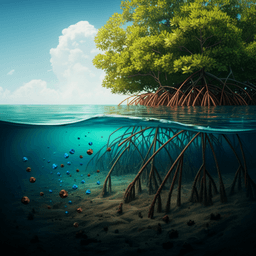
Environmental Studies and Forestry
Antarctic krill sequester similar amounts of carbon to key coastal blue carbon habitats
E. L. Cavan, N. Mackay, et al.
Discover how Antarctic krill play a pivotal role in carbon sequestration, matching the capabilities of coastal blue carbon habitats! With a staggering 20 MtC sequestered each season, this groundbreaking research by E. L. Cavan and colleagues at various esteemed institutions emphasizes the urgency of protecting this vital carbon sink amidst climate change and expanding fisheries.
Related Publications
Explore these studies to deepen your understanding of the subject.







